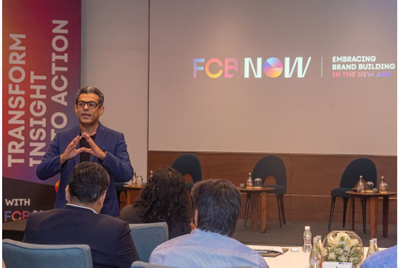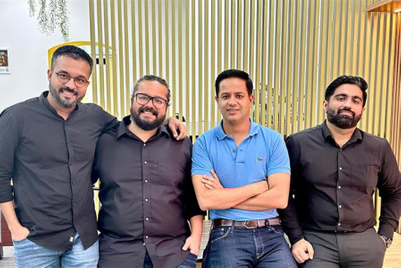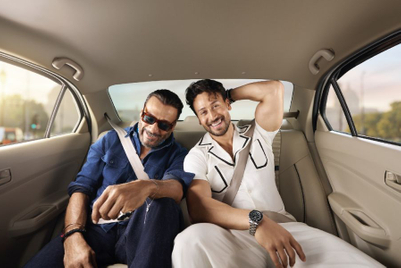.jpg&h=570&w=855&q=100&v=20250320&c=1)
FCB India isn’t just showing up at Cannes Lions 2025—it’s kicking off the party. The agency landed India’s first shortlist this year with Lucky Yatra for Indian Railways, a campaign that took a refreshingly non-punitive approach to curbing ticketless travel and earned a spot in the coveted Dan Wieden Titanium Lions category.
This also marks a celebratory milestone for Dheeraj Sinha, who clocks over a year as group CEO of FCB India and South Asia with a creatively confident body of work to show for it. From reimagining loyalty with Uber, to decoding dreams with Navbharat Times, and flipping the narrative for Flipkart, the agency has been on a high-speed run over the past 18 months.
Some of these ideas have already shone at Goafest, and now they’re ready for the global spotlight. The message? FCB India isn’t playing safe—it’s playing for legacy, with creativity that goes beyond the usual lines and lens flares.
Campaign: Lucky Yatra
Brand: Indian Railways
Indian Railways moves 24 million people daily—but a staggering number dodge fares, bleeding the system of millions annually. Cracking down didn’t work, so Mumbai’s division tried tapping into India’s INR 2.5 lakh crore obsession: lotteries.
Enter Lucky Yatra, a clever behavioural nudge dreamt up by FCB India. Now, every train ticket comes with a built-in lottery number. No new apps. No extra steps. Just a golden chance at a win for doing what you should’ve done anyway—buy a valid ticket. Suddenly, the most mundane of transactions has become a ticket to fortune—and for Indian Railways, to fewer freeloaders.
Campaign: Navneet Colour Blindness text books
Brand: Navneet
Navneet Education, an Indian schoolbook publisher, launched an initiative to address an often-overlooked learning challenge—Colour Vision Deficiency (CVD), commonly known as colour blindness. Children with CVD struggle to cope with the basics of education. They lose confidence and start falling behind in school.
The initiative has been conceptualised by FCB India and developed in close collaboration with ophthalmological experts and educators. Since 2022, Navneet Education and FCB India have partnered to bring purposeful innovation to education, crafting impactful ideas rooted in empathy and insight.

Campaign: Barabari Ki Bhasha
Brand: Navbharat Times
Language doesn’t just describe the world—it defines who gets to belong in it. Research consistently shows that the absence of gender-inclusive terminology directly impacts societal participation, subtly signalling who a profession is “meant for.” If there’s no feminine version of a job title, chances are fewer girls will picture themselves in that role.
Barabari Ki Bhasha is an initiative determined to level the linguistic playing field. The goal is to equip young girls with the vocabulary of ambition—because when the language of aspiration includes them, so does the world of opportunity.
It's not just about adding suffixes; it's about shifting mindsets. Words shape perception, and perception shapes possibility. This is language, re-engineered for equity.
Campaign: Uber One
Brand: Uber
Uber has long been seen as a global outsider cruising on Indian roads, finding it an uphill task to win that ‘apna brand’ (our brand) badge. So, in a clever turn of the wheel, it decided to go local—not by changing its services, but by speaking India’s language, literally.
Cue ‘Takes One to Get One’, a quirky campaign by FCB India that taps into a phonetic quirk unique to the country: millions of Indian names contain the sound “one.” Coincidentally (or maybe not), Uber’s new loyalty program in India is called ‘Uber One’.
The idea was that if your name features “one,” you get a free Uber One subscription. No gimmicks, no fine print—just a hyperlocal hack to turn names into media real estate and ride straight into Indian hearts. Turns out, localisation isn’t always about translation; sometimes, it’s just about smart pronunciation—and, of course, giving away free stuff.


.jpg&h=334&w=500&q=100&v=20250320&c=1)






.jpg&h=334&w=500&q=100&v=20250320&c=1)
.jpg&h=334&w=500&q=100&v=20250320&c=1)
.jpg&h=334&w=500&q=100&v=20250320&c=1)




.jpg&h=268&w=401&q=100&v=20250320&c=1)
.jpg&h=268&w=401&q=100&v=20250320&c=1)


